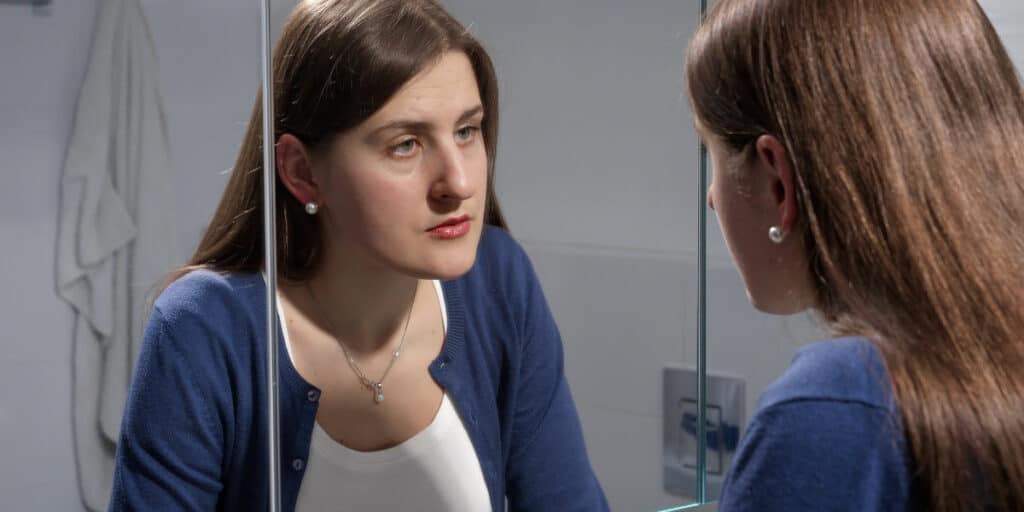Just How Emotional Evaluations Enhance Aesthetic Surgical Treatment Outcomes
By completely evaluating clients' mental and psychological states, cosmetic surgeons can acquire useful understandings into their motivations, expectations, and possible psychological barriers. As we discover the nuances of this technique, the effects for both individual fulfillment and lasting emotional well-being become noticeable, raising crucial inquiries concerning its function in shaping the future of cosmetic surgical treatment.
Comprehending Emotional Analyses
Psychological evaluations in the context of plastic surgery work as important devices to evaluate a patient's psychological and emotional readiness for medical intervention. These evaluations are created to identify underlying psychological problems, such as body dysmorphic disorder, anxiety, or anxiety, which may influence an individual's assumptions and fulfillment with surgical outcomes.
The process generally entails organized interviews, standardized questionnaires, and professional assessments provided by trained mental health experts. By methodically discovering an individual's inspirations for looking for plastic surgery, these examinations assist to determine whether the need for surgery originates from sensible self-improvement goals or from much deeper emotional problems.
Moreover, psychological analyses can facilitate notified decision-making by guaranteeing that individuals completely understand the prospective risks and advantages associated with aesthetic treatments. This understanding is crucial for lining up individual expectations with sensible end results, inevitably adding to a much more adequate surgical experience.
Additionally, these analyses can recognize clients who might profit from preoperative psychological assistance or counseling, consequently improving their overall well-being. Therefore, understanding psychological analyses is essential for enhancing both the psychological and surgical results of cosmetic surgical procedure.

Advantages for People
The implementation of emotional analyses in plastic surgery uses countless benefits for people, dramatically improving their general experience. First of all, these assessments give an organized opportunity for individuals to explore their inspirations for seeking surgical treatment. Recognizing their hidden needs can promote even more enlightened decision-making, lowering the possibility of regret post-surgery.

Furthermore, emotional assessments can help with much better communication in between people and their cosmetic surgeons. By verbalizing desires and worries more plainly, people can establish sensible goals, causing a much more adequate medical experience. Moreover, these analyses can improve patient-surgeon connection, cultivating trust fund and collaboration throughout the surgical trip.
Influence On Surgical Results
Just how do psychological assessments affect surgical end results in aesthetic treatments? Emotional assessments serve as vital devices in identifying clients' psychological wellness condition, assumptions, and inspirations prior to surgical procedure. mental health check for cosmetic surgery. By examining elements such as body photo assumption and psychological well-being, these assessments can predict how people will certainly react to cosmetic treatments
Study shows that clients with reasonable expectations are more probable to report satisfaction post-surgery. Conversely, those with underlying emotional concerns, such as body dysmorphic disorder, might experience frustration despite the procedural result. By identifying these problems early, practitioners can handle individual expectations efficiently and lower the probability of problems or regret after surgical treatment.
Additionally, psychological analyses can boost the surgeon-patient relationship, fostering open communication and trust. This rapport is crucial for ensuring that patients feel comfortable discussing their goals and issues, eventually causing more beneficial surgical results.
Tailoring Surgical Approaches

As an example, a person exhibiting indicators of anxiety may profit from a much more progressive approach, possibly starting with much less invasive procedures before advancing to more substantial surgical treatments. On the other hand, people with a strong sense of self and practical assumptions could be appropriate candidates for even more considerable interventions.
In addition, mental examinations can aid determine individuals who might require extra support or counseling, particularly if their inspirations come from underlying emotional problems. Customizing medical strategies not just boosts the technical implementation of the treatment but additionally promotes a joint environment in between the specialist and individual, causing even more acceptable results. Inevitably, this individualized approach advertises a deeper understanding of the person's unique situations, causing a much more unified balance between visual goals and emotional wellness, therefore enhancing the general cosmetic surgery experience.
Promoting Long-Term Contentment
To advertise long-term contentment in cosmetic surgical treatment, it is vital to develop reasonable assumptions and foster open interaction between the cosmetic surgeon and patient throughout the procedure. Mental assessments function as an important tool hereof, allowing Get the facts cosmetic surgeons to assess a person's motivations, needs, and prospective mental results. By recognizing an individual's emotional and psychological state, surgeons can offer customized recommendations that line up with the individual's true ambitions.
Additionally, participating in extensive discussions regarding the potential dangers, advantages, and limitations of the treatment assists alleviate impractical assumptions. cosmetic surgery psychological checks. Individuals who are well-informed are more most likely to value the results, contributing to higher satisfaction prices. Continuous follow-up after the surgery is also necessary in enhancing the surgeon-patient connection and attending to any type of issues that might emerge during recuperation
In addition, psychological evaluations can identify people who might be at threat for post-operative frustration, enabling for preemptive interventions. Inevitably, the integration of emotional analyses into the cosmetic surgical treatment process not just boosts medical results however likewise advertises lasting contentment, ensuring that patients feel content with their choices and results as time advances.
Verdict
By examining individuals' psychological and psychological preparedness, these evaluations help with the identification of underlying mental problems and motivations, leading to a lot more customized surgical methods. The Click This Link integration of emotional evaluations right into the medical procedure stands for an essential development in client care and results.
The implementation of emotional evaluations in cosmetic surgical treatment supplies various advantages for individuals, significantly enhancing their total experience.In addition, mental evaluations can help identify clients who may need extra support or counseling, specifically if their motivations stem from underlying emotional concerns. Emotional analyses serve as a beneficial device in this respect, allowing cosmetic surgeons to determine a client's motivations, needs, and possible psychological end results. By recognizing a client's emotional and psychological state, surgeons can offer tailored suggestions that align with the client's real desires.
By evaluating people' mental and psychological preparedness, these analyses facilitate the recognition of underlying psychological problems and inspirations, leading to much more customized surgical techniques.